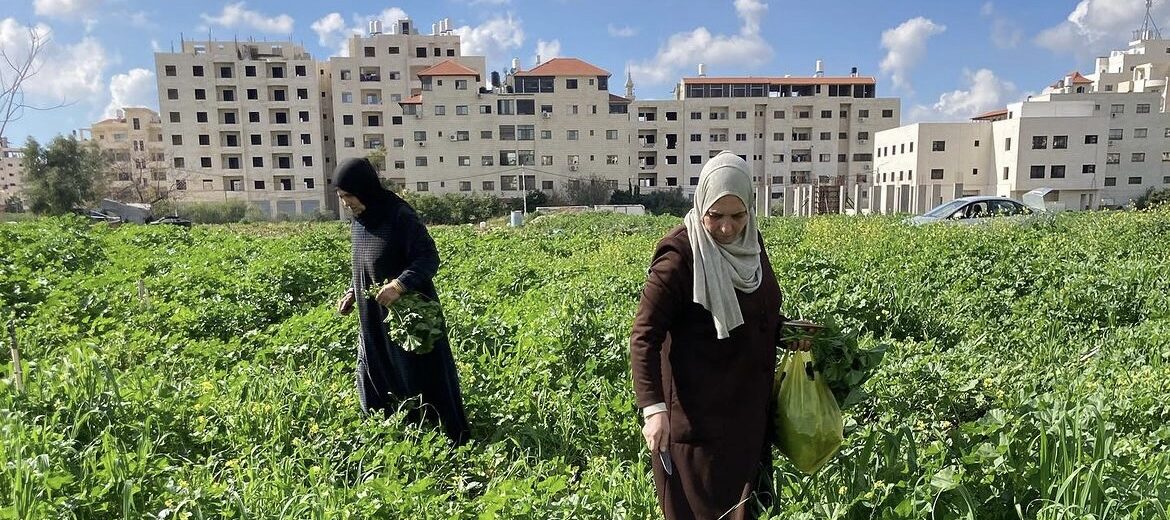“Food is the lifeline of our people.” — REEM ASSIL
A family decorates its tent for Ramadan in a refugee camp. A Rafah bakery, now solar-powered due to limited electricity, reopens so people can celebrate birthdays, weddings, and other cakeworthy milestones. A young woman prepares traditional khobiza (mallow leaves) for the first time, from plants foraged from the roadside.
As participants shared at a recent virtual event, these are some of the many ways Palestinians are resisting—creating beauty, connection, and celebration amidst scenes of genocidal violence. The Palestinian people show us that food, and the rich cultural practices it is embedded in, is a lifeline that can never be completely severed.
It’s worth drinking in these stories, not only as a salve for our own exposure from afar to the devastating imagery of unfolding genocide, but as the fuel for solidarity. But of course, the reality on the ground is bleak: The population of 2.2 million Palestinians—is struggling to meet its food needs, with 1.1 million people in Gaza reaching catastrophic levels of hunger and starvation deaths on the rise. Food aid has been frequently blocked, part of a long history of the weaponization of food since the Nabka that includes land theft, water apartheid, and destruction of agricultural sites.
To date, with material support from the United States, over 31,000 Palestinian people have been murdered in retribution for the roughly 1,200 Israelis killed and 250 hostages seized on October 7, 2023. Cut off from aid and their daily foodways, Palestinians have been relying on animal feed, rotten food, and foraging for plants like khobiza, that grow in harsh conditions. When food aid has trickled in, accessing it has subjected dozens of desperate people to “flour massacres.”
We leave you with these words from one of our favorite story-driven cookbooks, Zaitoun: Recipes from the Palestinian Kitchen by Yasmin Khan. While these words predate October 7th, they are emblematic of Palestinian resilience:
“As long as I can keep celebrating our culture, I can hang on to some of my freedom. During the Nakba, we lost our land and our homes, many people were expelled and of course now there is the Occupation. But just like the olive trees, our roots are deep and connected to this land. No matter what changes above, we are rooted here and nothing can change that.” —Fadi Najir
Ramadan Mubarak to all who celebrate.
In solidarity,
Tiffani, Tanya, and Christina
Featured image: Women harvesting mallow, chard, wild mustard, and dandelion leaves, from @Palestinian_Grandma on Instagram

